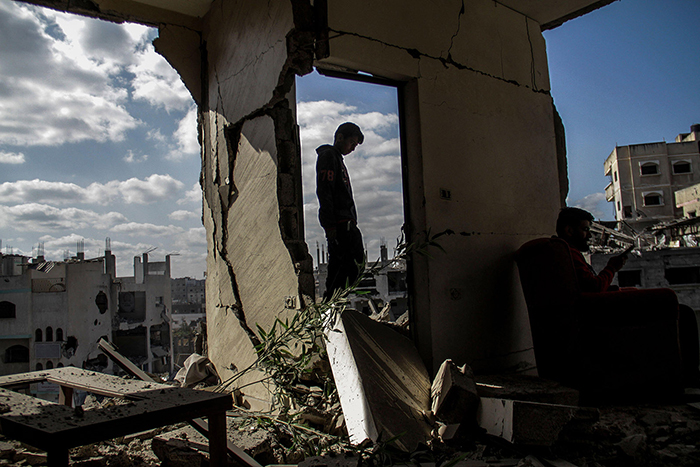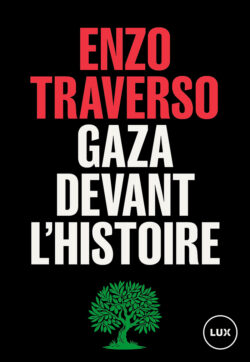Sous-total: $

‘Infinite License’
The memory of the Holocaust has, perversely, been enlisted to justify both the eradication of Gaza and the extraordinary silence with which that violence has been met.
On January 12, 1904, the Herero people of German Southwest Africa—today’s Namibia—launched a series of attacks on scattered German farms in the territory. The Herero, a pastoral group of about 80,000, depended on their vast cattle herds for their economic, social, and cultural life, but the German settlers who had begun to arrive in the late nineteenth century increasingly encroached on their grazing lands.
The rebels destroyed many of the farms and killed more than a hundred settlers, mostly sparing women and children. For the settlers the rebellion served as a final proof of the need to eradicate the Herero, whom they described as “baboons.” Unable to restore order, the German governor appealed to Berlin, which sent some 10,000 soldiers. By August they had crushed the Herero fighters. In October the German commander, Lieutenant General Lothar von Trotha, issued what has come to be known as his Vernichtungsbefehl (extermination order) to those who remained:
The Herero are German subjects no longer. They have killed, stolen, cut off the ears and other parts of the body of wounded soldiers, and now are too cowardly to want to fight any longer…. The Herero nation must now leave the country. If it refuses, I shall compel it to do so with the big cannon. Any Herero found inside the German frontier, with or without a gun or cattle, will be executed. I shall spare neither women nor children.
Most of the Herero were shot or died of thirst and hunger in the desert to which they had been expelled. Several thousand were taken to forced labor camps.
[…]
Lisez la suite ici.
Omer Bertov, The New York Review of Books, 24 avril 2025.
Photo: Mahmoud Issa/Quds Net News/ZUMA Press Wire/Alamy
 Mon compte
Mon compte





